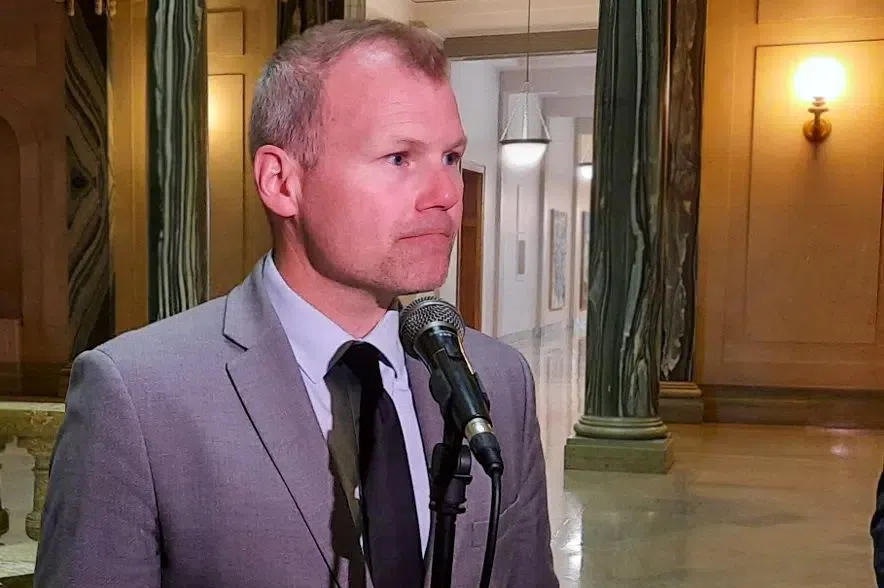For about two months, Saskatchewan has been hearing that most people in the province would no longer be paying the carbon tax on home heating as of the new year.
But the realities around that have turned out to be more complicated.
As of Jan. 1, SaskEnergy bills now include a rebate for the carbon tax portion, as do SaskPower bills for those who use electric heating.
Now, the provincial government has put in two applications to the federal government – one to deregister SaskEnergy as the official natural gas distributor and another to put Crowns Minister Dustin Duncan and the provincial government in its place.
However, it’s not clear what will happen with the applications.
“We don’t have any assurance that they will accept the registrations. It’s at the minister’s discretion,” explained Duncan.
If the federal government doesn’t accept the applications, Duncan said the province will first have to find out why it was rejected.
“We had unanimous support in the legislature to make these changes to, first and foremost, protect and indemnify the officers, the officials and the employees and the board members at SaskEnergy and so that certainly is the will of the Legislative Assembly of Saskatchewan for a provincial entity,” said Duncan.
The minister said the province would look to see whether there are “legal opportunities” to challenge the decision.
While the tax is no longer being charged for home heating, Duncan said the province hasn’t decided whether it still remit the amount to the federal government.
He said the province will choose to continue paying the tax if the distribution applications are rejected. If SaskEnergy was still the distributor, it would be on the hook for any consequences for not paying the tax and Duncan said that’s not the intent.
“This whole issue about remitting or not remitting, that’s a decision that we’re going to make as a provincial government, that I’ll make as the minister,” he said. “That’s not (a decision) that somebody at SaskEnergy is going to make and so if there are negative consequences potentially around that decision, they shouldn’t be the ones that are paying the consequences of that.”
If the provincial government does continue to pay the tax, Duncan said decisions will have to be made on where that money would come from. He said it wouldn’t be put back on bills, but it could come from the province’s general revenue fund or the SaskEnergy bottom line.
Duncan has said SaskEnergy remits more than $170 million a year in the carbon tax.
“If there is a decision about remittance in the future, then we will have to make decisions about where those funds are going to come from, because they’re not going to be paid directly by the customers at SaskEnergy,” said Duncan.
When asked whether this plan would just pass the cost of the carbon tax from SaskEnergy customers to taxpayers at large, Duncan said those affected by these changes represent more than 98 per cent of people in the province. He then spoke about fairness.
“This is really just a way for us to be able to provide an option for the prime minister to really give that fairness to everybody else in the rest of the country,” said Duncan.
The minister said the intent is to not have the tax collected and not to have the tax remitted, either.
“If the federal government is going to force Saskatchewan to continue to pay a carbon tax here in Saskatchewan that people in other parts of the country don’t have to pay, then we’re going to look at all of our options, including additional legal options depending on the ruling that the federal government makes,” he explained.
Duncan said the province is trying to ensure SaskEnergy and SaskPower customers are kept whole in their upfront costs and keep the treasury whole as well.
“People in Atlantic Canada who are getting relief for heating oil in not having to pay the carbon tax, their provincial governments aren’t having to backstop that and make the payment to the federal government, so why should we have to do that as well?” said Duncan.
The federal government has also recently indicated the carbon tax rebate received by people in Saskatchewan will be affected if the province doesn’t pay the tax.











